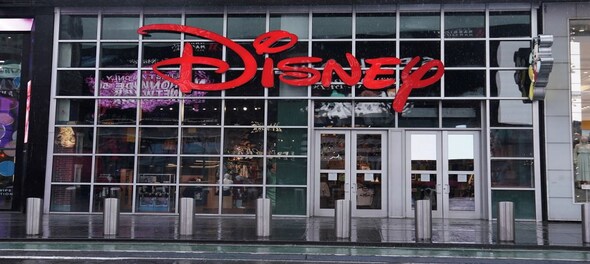
Walt Disney Co. just suffered its worst one-day rout in 21 years. Warner Bros. Discovery Inc., Lions Gate Entertainment Corp. and AMC Entertainment Holdings Inc. are all trading for less than $10. Paramount Global - the home of MTV, CBS and Top Gun: Maverick has lost half of its value this year.
In a matter of months, Hollywood’s feel-good streaming story has turned into a horror show.
Consumers are streaming more movies and shows and watching less in theaters and on traditional channels. To encourage the switch and attract subscribers, media companies are putting some of their best programs online. But the new services are losing boatloads of money, even as viewers drop traditional channels in droves. Executives who promised a smooth transition to the digital era are getting punished by Wall Street, with media stocks headed toward their steepest annual loss since at least 1990.
“The media and entertainment industry are going through a major transition,” said Porter Bibb, a longtime investor and observer of the business. “They’ve entered the tunnel, and nobody knows where they’re going to come out.”
The shift is evident in the number of consumers canceling their pay-TV subscriptions. Cable-TV giants Comcast Corp. and Charter Communications Inc. together lost almost 800,000 TV subscribers last quarter. At that pace, it will mean millions of fewer customers to help pay for MTV, CNN and ESPN.
The one bright light this quarter was Netflix Inc., whose subscriber loss in the first half of the year prompted a reevaluation of the industry’s business models and stock values. The streaming industry pioneer reported a better-than-expected 2.41 million new subscribers last quarter. Its shares are still down 57 percent this year.
Losses at Disney’s direct-to-consumer arm, driven by the Disney+ streaming service, more than doubled to $1.47 billion in the company’s fiscal fourth quarter, due to higher programming expenses and the cost of rolling the service in new countries.
Weakness in cable-television advertising revenue also hurt the company’s performance, as it has for other media giants. Disney finished the day down 13 percent, the biggest one-day loss since Sept. 17, 2001, when trading resumed after the Sept. 11 terrorist attacks.
The losses in media stocks aren’t all Hollywood entertainment companies. The biggest loser in the S&P 500 Media & Entertainment Index this year is Facebook parent Meta Platforms Inc., which gets nearly all of its revenue from advertising. Meta is down 70 percent this year.
The deterioration of Disney’s traditional TV business may be the bigger shocker from this week’s earnings, according MoffettNathanson analyst Michael Nathanson. The company projected high single-digit profit growth next year, well below what he’d been expecting.
“Rarely have we ever been so incorrect in our forecasting of Disney profits,” Nathanson wrote in a research note on Wednesday. “It appears that the negative economic force of cord-cutting (plus a weakening ad market) has finally begun to manifest in Disney’s FY 2023 results,”
Disney’s sales, at $20.2 billion, came up about $1 billion short of analysts’ projections. Earnings, excluding certain items, fell to 30 cents share, missing the average estimate of 51 cents from analysts surveyed by Bloomberg.
Disney told investors this week that losses in its streaming business have peaked.
At the Paley International Council Summit in New York Wednesday, Disney Chief Executive Officer Bob Chapek acknowledged Wall Street’s frustration with the massive investments in online TV, including ESPN+ and Hulu.
“Our investors expect us to have a return on that,” he said.
The company, he noted, is celebrating its 100-year anniversary next year. There will be speed bumps, Chapek said, especially when trying a new business model.
“But it’s certainly better than the other option, which is to become extinct,” he said.
(Edited by : Sangam Singh)
Check out our in-depth Market Coverage, Business News & get real-time Stock Market Updates on CNBC-TV18. Also, Watch our channels CNBC-TV18, CNBC Awaaz and CNBC Bajar Live on-the-go!


Stampede-like situation disrupts Rahul Gandhi, Akhilesh Yadav's joint rally in Uttar Pradesh
May 19, 2024 4:26 PM
Ladakh Lok Sabha election: With Independent candidate's entry, it's now a 3-way contest for BJP and Congress
May 19, 2024 4:01 PM

